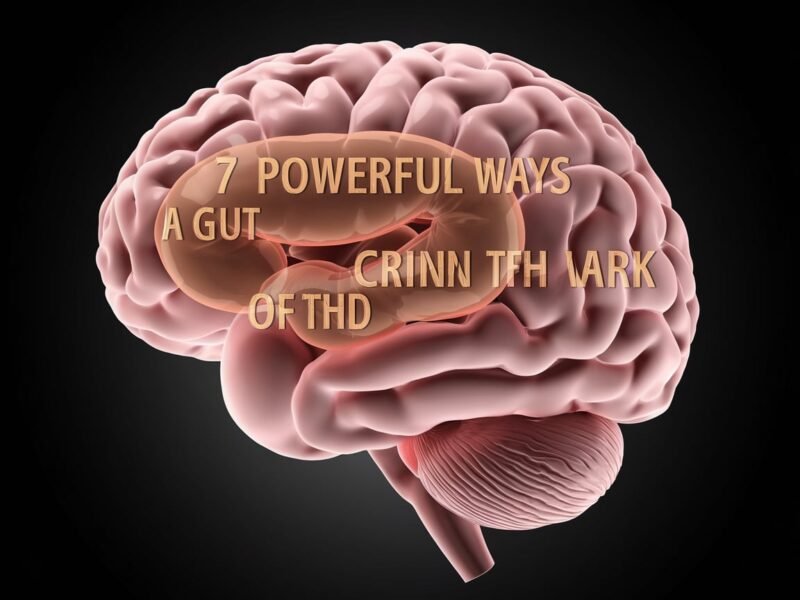Meta Description: Discover the key strategies to achieving a wellness-filled, happy life. Learn how balance in physical, mental, emotional, and spiritual health can improve your overall well-being and happiness.
Introduction: A Comprehensive Guide to Living a Wellness-Filled, Happy Life
A wellness-filled, happy life goes beyond the mere absence of illness; it involves a comprehensive approach to nurturing your mind, body, and soul. It’s about creating balance, maintaining emotional resilience, fostering meaningful connections, and living in alignment with your values. Whether it’s through practicing self-care, managing stress, or focusing on health, wellness is an ongoing journey that requires daily effort and intention.
In this article, we will explore what it means to live a wellness-driven life, the key factors that contribute to overall happiness, and practical tips that can help you achieve lasting wellness and joy.
1. Understanding Wellness: The Holistic Approach to a Happy Life

True wellness is a holistic concept—it’s not just about physical health but also mental, emotional, social, and spiritual well-being. Wellness encompasses eight key dimensions, and balancing these areas will help you lead a fulfilling, happy life.
The 8 Dimensions of Wellness
- Physical Wellness: Focusing on maintaining a healthy body through exercise, good nutrition, rest, and preventative care. Regular physical activity and proper sleep help improve mood, reduce stress, and boost energy levels.
- Emotional Wellness: Being able to recognize, express, and manage your emotions in a healthy way. Emotional wellness helps you cope with stress, setbacks, and challenges while maintaining inner peace.
- Social Wellness: Developing and maintaining healthy, supportive relationships with family, friends, and communities. Strong social connections can provide emotional support and improve overall life satisfaction.
- Intellectual Wellness: Engaging in continuous learning, stimulating creativity, and exploring new ideas. Intellectual wellness enhances problem-solving skills, cognitive function, and curiosity.
- Spiritual Wellness: Finding purpose, meaning, and connection to something greater than yourself, whether through religion, nature, or personal values. Spiritual wellness nurtures inner peace and a sense of direction.
- Environmental Wellness: Living in harmony with your surroundings by ensuring a safe, healthy, and sustainable environment. A clean, organized, and calming space positively impacts mental health and well-being.
- Occupational Wellness: Finding satisfaction and balance in your work life, while ensuring it aligns with your values and passions. Job satisfaction and fulfillment contribute to personal happiness and purpose.
- Financial Wellness: Managing your financial resources effectively, including budgeting, saving, and investing. Financial stability reduces stress and provides security for the future.
Focusing on and balancing all of these aspects leads to a fulfilling and happy life.
2. Key Habits to Cultivate a Wellness-Filled, Happy Life

To truly embrace wellness, you need to adopt habits that support your physical, mental, and emotional well-being. These practices should be integrated into your daily routine, and small changes can lead to long-lasting results.
2.1. Physical Health: Prioritize Exercise, Nutrition, and Rest
Good physical health is the foundation for all other areas of wellness. When your body feels good, you’re more likely to be energized, positive, and motivated to take care of other aspects of your life.
- Exercise: Regular physical activity has numerous benefits. It improves cardiovascular health, boosts mood through endorphins, increases energy levels, and reduces stress. Aim for at least 150 minutes of moderate-intensity exercise per week (such as walking, jogging, or swimming).
- Nutrition: What you eat directly affects your body and mind. Focus on consuming a balanced diet rich in whole foods, including fruits, vegetables, whole grains, lean proteins, and healthy fats. Stay hydrated and minimize processed foods, excess sugar, and unhealthy fats.
- Rest and Recovery: Sleep is essential for both physical and mental health. Aim for 7-9 hours of quality sleep each night. Adequate rest supports cognitive function, emotional stability, and overall energy.
2.2. Mental and Emotional Health: Manage Stress and Foster Positivity
Your emotional and mental health are crucial for overall well-being. Practices like mindfulness, emotional regulation, and stress management are essential for maintaining a balanced state of mind.
- Mindfulness and Meditation: Practicing mindfulness—being fully present in the moment—helps reduce anxiety, enhance focus, and improve emotional well-being. Meditation can also improve your ability to manage stress and emotional triggers.
- Emotional Intelligence: Learn to recognize and understand your emotions. By identifying emotional triggers, you can better manage them and respond thoughtfully, rather than reacting impulsively.
- Gratitude Practices: Maintaining a gratitude journal is a simple but effective way to increase happiness. Writing down three things you’re thankful for each day shifts your focus from what’s wrong to what’s right, fostering a more positive outlook on life.
2.3. Build Meaningful Relationships and Social Connections
Humans are social creatures, and meaningful relationships play a vital role in happiness. Building strong, supportive relationships with family, friends, and colleagues can improve your emotional well-being and provide a sense of belonging.
- Nurture Your Relationships: Make time for quality connections. Prioritize face-to-face interactions, engage in active listening, and show empathy and support. This fosters deeper bonds and strengthens your social network.
- Join Communities: Finding a community of like-minded individuals, whether through hobbies, sports, or volunteer work, can enhance feelings of belonging and reduce loneliness.
2.4. Find Purpose and Fulfillment in Everyday Life
A sense of purpose is integral to happiness. Feeling fulfilled and engaged in life often comes from doing work that is meaningful to you, whether that involves your career, hobbies, or volunteer work.
- Work-Life Balance: Finding a balance between professional obligations and personal interests is critical for maintaining mental and emotional well-being. Take regular breaks, set boundaries, and pursue personal passions outside of work.
- Pursue Passions: Hobbies are a great way to infuse more joy into your life. Whether you enjoy reading, painting, gardening, or playing music, engaging in activities you love contributes to a sense of fulfillment and happiness.
3. Sustaining a Happy and Wellness-Filled Life

It’s not enough to just start practicing wellness habits—you need to maintain them for lasting results. Here are some tips to help sustain your progress:
- Set Realistic and Achievable Goals: Break down larger wellness goals into smaller, manageable steps. Celebrate each milestone along the way to stay motivated and track your progress.
- Practice Self-Compassion: Be kind to yourself when things don’t go as planned. Treat yourself with the same compassion you would offer a friend. Self-compassion improves emotional resilience and prevents burnout.
- Reflect and Adapt: Regularly assess your wellness journey. Are your habits serving you well? Is there an area of wellness that needs more attention? Don’t be afraid to adjust your approach as needed.
4. Conclusion: Embrace Wellness for a Happier Life
A wellness-filled, happy life is within reach for everyone. By focusing on physical health, emotional balance, meaningful relationships, and personal fulfillment, you create a solid foundation for a joyful existence. It’s about more than just feeling good—it’s about creating a life that is balanced, purposeful, and connected. Start small, make daily improvements, and remember that your wellness journey is personal. Embrace it with intention and patience, and the benefits will be profound.
Frequently Asked Questions (FAQs)
1. What are the key factors that contribute to a wellness-filled life?
Key factors include physical health (exercise and nutrition), emotional well-being (stress management and self-compassion), mental health (mindfulness and emotional intelligence), social connections (building relationships), and finding purpose and fulfillment.
2. How can I begin to live a more balanced, wellness-filled life?
Start by setting small, achievable goals in one area of wellness (such as improving sleep or exercising regularly). Gradually incorporate other wellness practices into your routine and evaluate your progress.
3. Can pursuing hobbies really make me happier?
Yes! Engaging in activities you enjoy boosts your happiness, reduces stress, and fosters a sense of purpose. Whether it’s a creative hobby, outdoor activity, or learning new skills, hobbies contribute significantly to overall well-being.
4. How do I maintain a happy life when faced with challenges?
Focus on resilience. Practice mindfulness, cultivate a positive mindset, lean on your support system, and remind yourself of your strengths. Learning from challenges and embracing self-compassion helps you bounce back stronger.
Resources:
- Mayo Clinic – Wellness Tips
- National Institute of Mental Health – Mental Health Resources
- Harvard Health – Exercise and Wellness
By focusing on a balanced, holistic approach to life and well-being, you can lead a more fulfilled, meaningful, and happy life. Every step you take towards better health, mindfulness, and positive relationships brings you closer to wellness.



